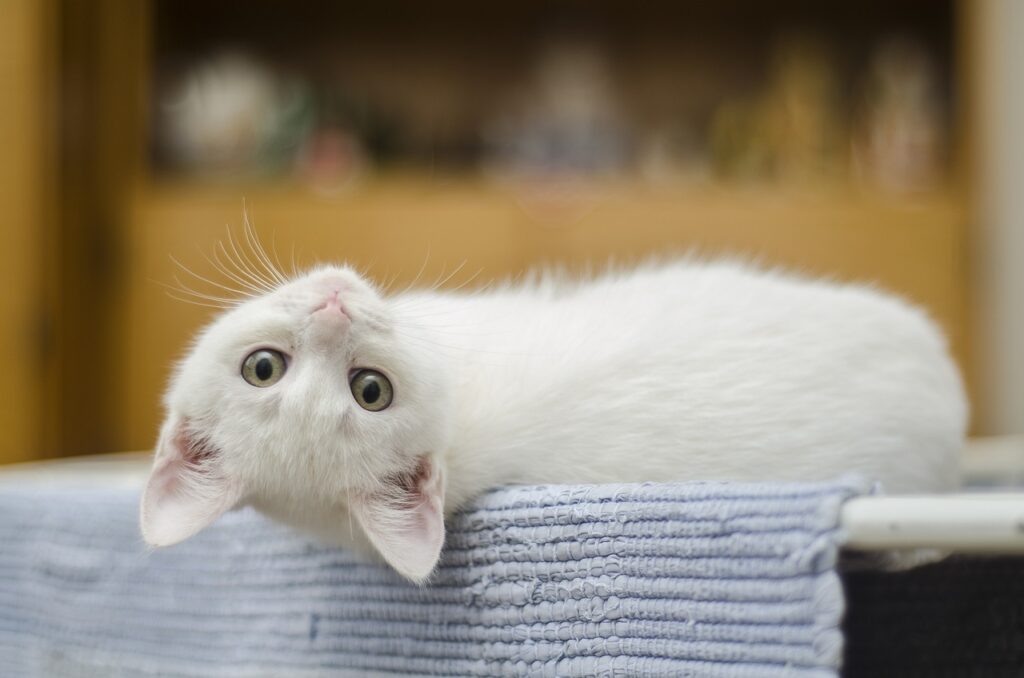Can Cats Eat Pepperoni? – No, They can’t
When it comes to sharing your snacks with your feline friend, you may wonder “Can cats eat pepperoni?” The simple answer is no. While pepperoni is not toxic to cats, it contains a mix of seasonings and preservatives that are not suitable for your pet. Cats require a specific diet that is high in protein but pepperoni’s high sodium and fat content can lead to obesity and other health issues such as digestive disturbances in cats. It’s crucial to stick to foods that support a cat’s dietary needs.
Can Kittens Eat Pepperoni?
Kittens should not eat pepperoni either. In fact, it’s even more important to be cautious with a kitten’s diet because their digestive systems are not fully developed. Introducing high-sodium and high-fat foods like pepperoni to young cats can cause upset stomachs, dehydration, and potentially lead to health issues as they grow. Stick to kitten-formulated foods to ensure they receive the nutrients they need for proper development.
Things to consider when feeding pepperoni to kittens?
Kittens need nutrient-rich diets that are high in protein to grow strong and healthy. Feeding pepperoni, with its spices and preservatives, can disrupt their delicate digestive systems and potentially introduce excessive amounts of unhealthy ingredients into their diet. It can also use up an important part of their daily food intake, which should be balanced and high in nutritional value, not filled with potentially harmful components like those found in processed meats.
Nutritional Benefits of Pepperoni for Cats – Why Pepperoni is not good for Cats?
Sodium Content
Pepperoni is high in sodium which can lead to sodium ion poisoning in cats if consumed in large amounts. Cats need much less sodium than humans, and excessive salt intake can lead to serious health complications such as kidney damage or hypertension.
Spices and Additives
The spices in pepperoni, like garlic and onion powder, are toxic to cats. These additives can cause gastrointestinal irritation and, more seriously, could lead to hemolytic anemia which is a dangerous condition damaging a cat’s red blood cells.
Fat Content
High-fat foods such as pepperoni can be difficult for cats to digest. Overconsumption of fatty foods can result in pancreatitis, which is an inflammation of the pancreas, and can lead to long-term health problems or acute distress.
Artificial Preservatives
Processed meats like pepperoni contain artificial preservatives such as sodium nitrate which can be harmful to cats. These chemicals are added to keep the product fresh but are not part of a natural diet for an obligate carnivore such as a cat.
Lack of Nutritional Value
Pepperoni does not provide any significant nutritional value that is required by cats. Feline diets should be focused on high-quality animal proteins, and feeding them foods like pepperoni offers no benefit and plenty of risks.
Potential Allergies: Can Cats Be Allergic to Pepperoni?
While allergies to pepperoni specifically are not common in cats, the ingredients within pepperoni such as certain proteins or additives could potentially cause allergic reactions in some cats.
Symptoms of Pepperoni Allergies in Cats
- Gastrointestinal Issues: An allergic reaction might manifest as vomiting or diarrhea. Monitor your cat closely if they have eaten something they shouldn’t have.
- Skin Irritation: You might observe itchiness or rashes on your cat’s skin which could be a sign of an allergic reaction.
- Respiratory Symptoms: In rare cases, allergic reactions may cause respiratory difficulties such as wheezing or coughing.
What to Do If Your Cat Shows Symptoms?
- Visit a Vet: If you notice any aberrant signs after your cat has eaten pepperoni, take them to the vet immediately.
- Hydration: Ensure your cat has plenty of water, especially if they show signs of an allergic reaction to help flush out their system.
- Monitor Diet: Trace back and remove pepperoni or any other new food items from your cat’s diet to avoid further issues.
Recommended Amount: How Much Pepperoni Can a Cat Consume?
It is recommended that cats should not consume pepperoni at all. The risks far outweigh any potential enjoyment your cat may get from eating it. Provide them with cat-safe treats instead.
Things to Consider When Feeding Pepperoni to Cats
Cats require a balanced diet formulated for their specific dietary needs. Pepperoni is not a safe treat due to its high salt, fat content, and potential toxicity. Always research or consult with a veterinarian when you’re unsure about feeding your cat a new type of food.
How to Feed Pepperoni to Cats: A Quick Guide
Although pepperoni is not recommended for cats, there may be cat-safe treats that capture the savory flavor without the health risks. Look for vet-approved snacks that are meat-based with minimal additives.
Cat-Safe Meaty Treats
No actual recipes are recommended for feeding pepperoni to cats, but you can create simple homemade treats using safe, cooked meats like chicken, turkey, or lean beef in small quantities.
Healthy Alternatives
Consider making treats with cat-friendly ingredients such as pumpkin, cooked carrots, or fish. Always ensure all ingredients are safe for cats before use.
Store-Bought Cat Treats
Choose high-quality, formulated treats from pet stores that cater to the nutritional needs of your cat. Read the labels and pick those with simple, wholesome ingredients.
Conclusion
Cats are curious by nature and may show interest in human foods such as pepperoni. However, it’s important to be mindful that this particular food item is not suitable or safe for them. Stick to cat-specific foods and treats to ensure your feline friend maintains a healthy and balanced diet.



